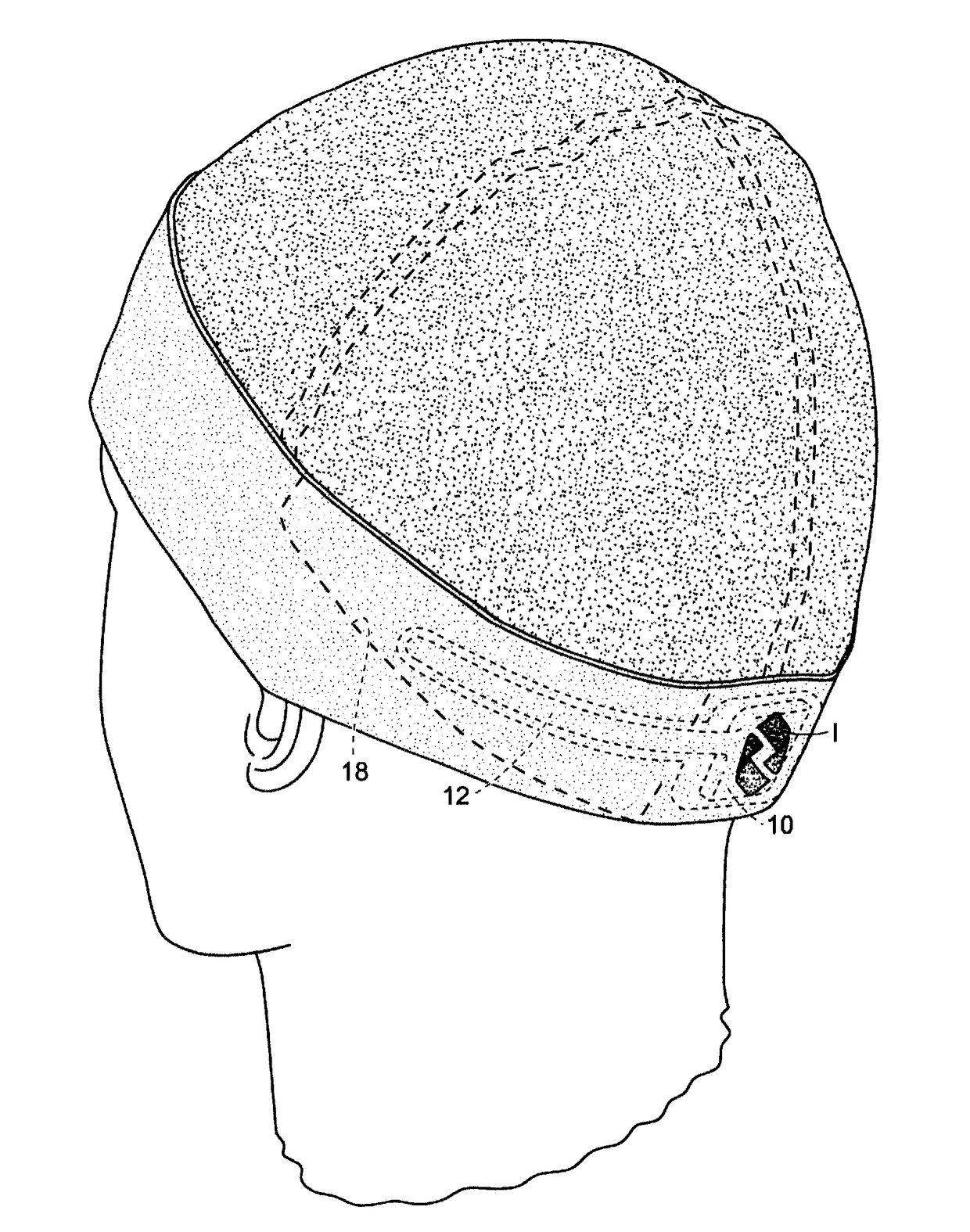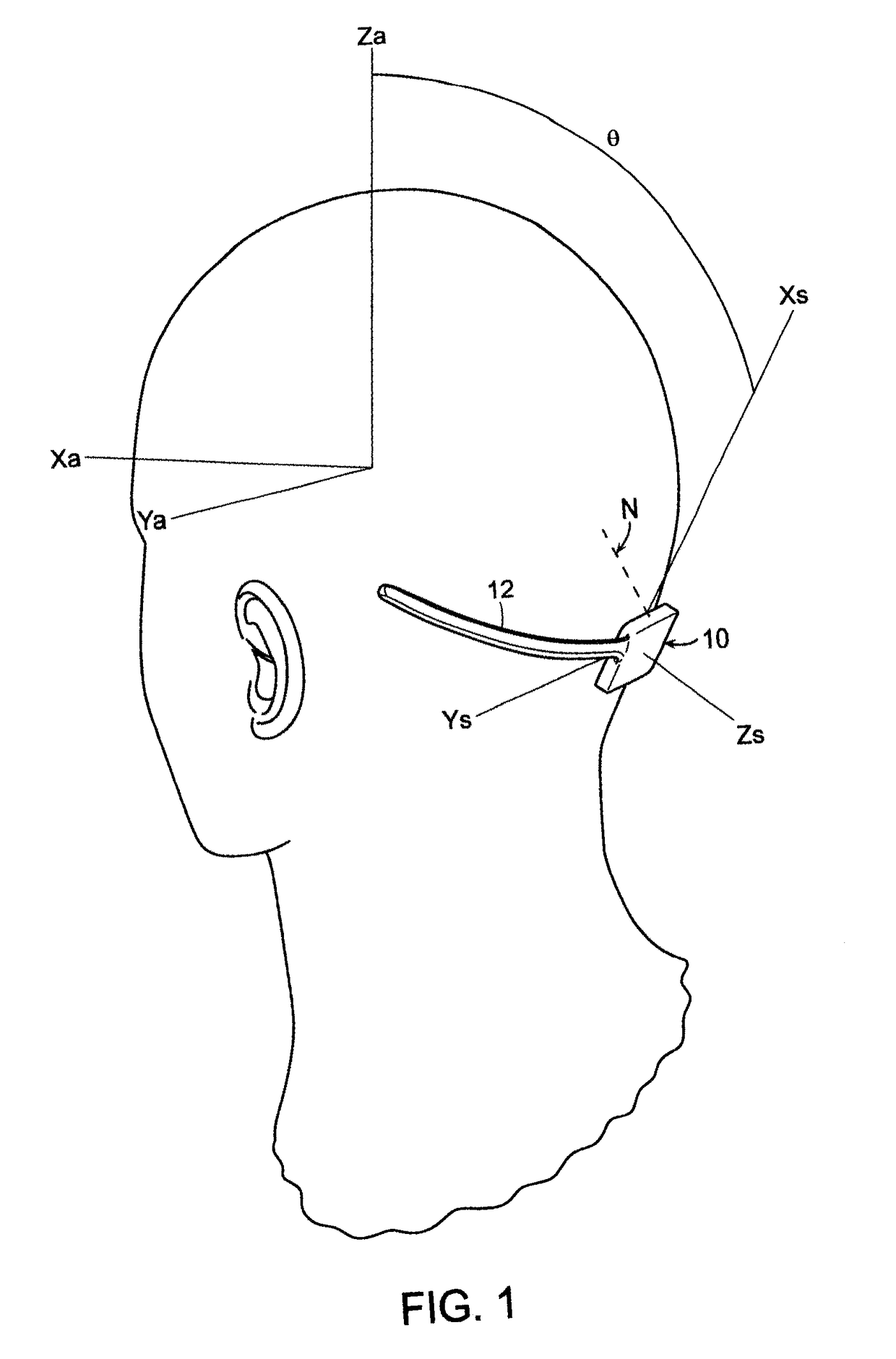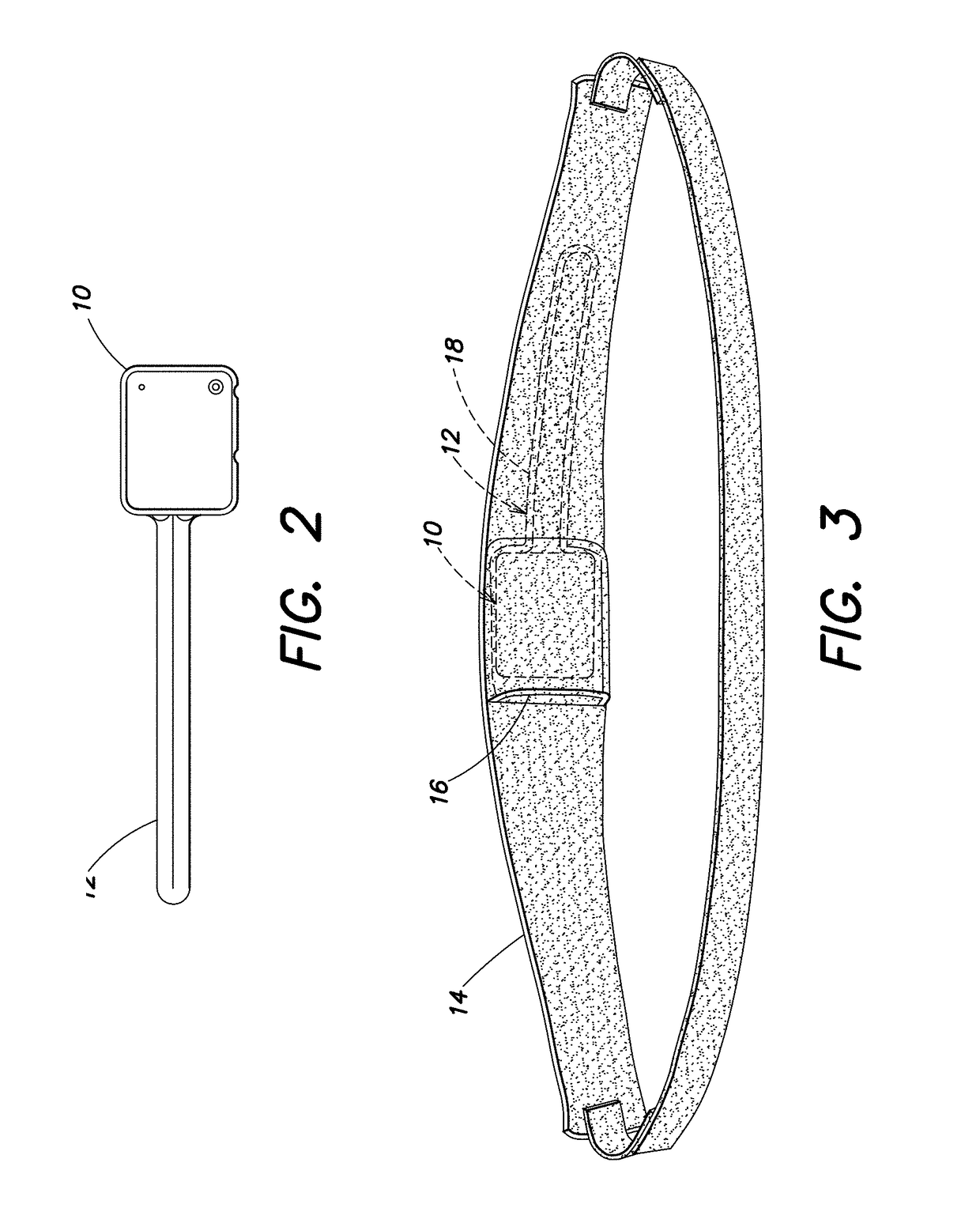Sensor module for sensing forces to the head of an individual and wirelessly transmitting signals corresponding thereto for analysis, tracking and/or reporting the sensed forces
a sensor module and individual technology, applied in the field of sensing forces to the head of individuals, can solve the problems of not providing real-time information relating to the occurrence of impact events, and individuals engaged in a wide variety of physically demanding sports and activities risk brain or other serious injuries, so as to improve athletic performance, reduce risk, and make a game or activity safer
- Summary
- Abstract
- Description
- Claims
- Application Information
AI Technical Summary
Benefits of technology
Problems solved by technology
Method used
Image
Examples
Embodiment Construction
[0035]As shown in FIG. 1, a sensor module 10 in accordance with certain aspects of the present invention is typically a small, environmentally sealed device incorporating a sub GHz transceiver, a low power microprocessor, a 3-axis high g accelerometer, a 3-axis low g accelerometer, a 3-axis gyroscope, a non-volatile memory, a battery, a battery charger and other support circuitry. The sensor module 10 is sometimes referred to herein as a mobile sensor or a SIM or an impact monitor. The sensor module 10 is in substantial alignment with the median nuchal line of the occipital bone of the skull shown in dashed lines at N and, normally, between the inferior and superior nuchal lines. One embodiment utilizes a curved elongate antenna 12 extending from the sensor module housing toward the left side of the head. The anatomical axes denoted as Xa, Ya and Za, the sensor axes denoted as Xs, Ys and Zs and the subtended angle θ are illustrated in FIG. 1. The anatomical axes allow correlation wi...
PUM
| Property | Measurement | Unit |
|---|---|---|
| frequency | aaaaa | aaaaa |
| forces | aaaaa | aaaaa |
| flexible | aaaaa | aaaaa |
Abstract
Description
Claims
Application Information
 Login to View More
Login to View More - R&D
- Intellectual Property
- Life Sciences
- Materials
- Tech Scout
- Unparalleled Data Quality
- Higher Quality Content
- 60% Fewer Hallucinations
Browse by: Latest US Patents, China's latest patents, Technical Efficacy Thesaurus, Application Domain, Technology Topic, Popular Technical Reports.
© 2025 PatSnap. All rights reserved.Legal|Privacy policy|Modern Slavery Act Transparency Statement|Sitemap|About US| Contact US: help@patsnap.com



